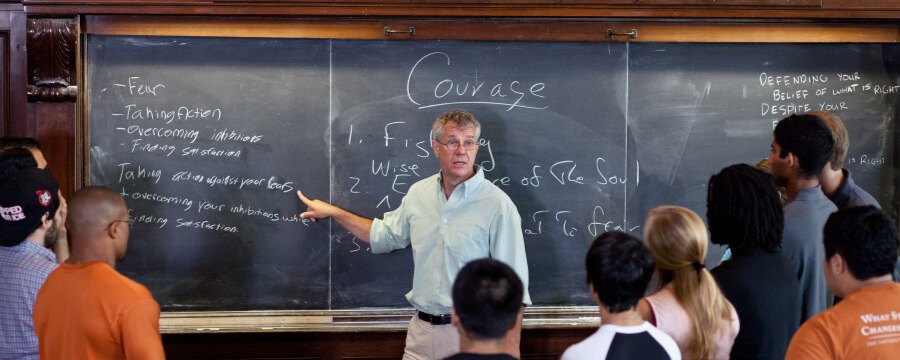
Welcome to the Department of Philosophy
Edit Subhead Text
Philosophy, the pursuit of wisdom, is one of the oldest and most enduring human intellectual enterprises. Philosophy begins in wonder—wonder at the richness, order, and beauty of the world around us, wonder at the grandeur and horror of the acts we perpetrate, and, not least, wonder at the mystery and elusiveness of our own nature. But it does not stop there. Philosophers reflect on all these matters, trying to understand the world and themselves.
Philosophers have generally taken several questions as central:
-
What is there? (And, what, in particular, am I?)
-
How do I know?
-
What should I do?
The Philosophy Department of the University of Texas at Austin carries on that tradition.

Graduate Program
Our department is one of the nation's largest and was recently ranked among the top twenty programs in the United States, based on a survey of over 200 philosophers conducted by the Philosophical Gourmet Report.
Learn More
Undegraduate Program
Students should expect to gain the ability to think logically, analyze and solve problems, assess proposed solutions, and the keen ability to write and speak clearly.
Learn More
Faculty
Our faculty include top scholars in a range of discipline, including ancient philsoophy, epistemology, ethics, philosophy of mind, metaphysics and more.
Learn More





